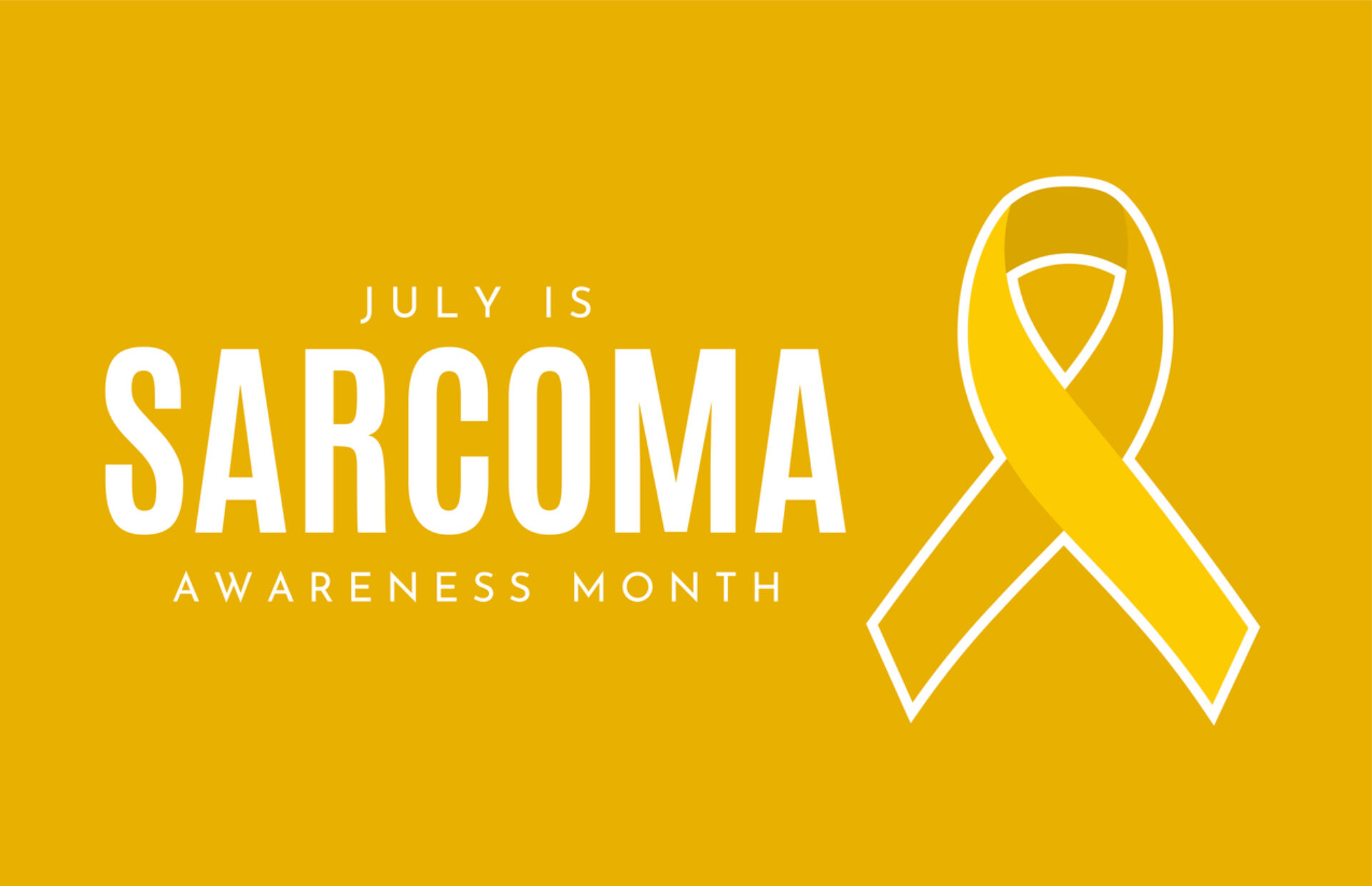July is Sarcoma Awareness Month, promoted every year to raise awareness of sarcoma and the importance of early diagnosis. The charity Sarcoma UK spearheads the awareness campaign, and for 2025, they’re focusing on healthcare professionals as these are the people best placed to spot the early signs of sarcoma. The earlier it is detected, the higher the chance of successful treatment.
In this article, we’re going to explain more about sarcomas, symptoms to look out for, sarcoma diagnosis and what treatment people with sarcoma would receive. This Sarcoma Awareness Month calls for people to help raise awareness in any way they can, so we hope this article will go some small way in helping people to be more aware of the signs and symptoms of sarcoma to increase early diagnosis.
What is sarcoma?
Sarcomas are rare types of cancer that can occur in various areas of the body. They occur in the supporting tissues of the body, which include bone, cartilage, tendons, fat and muscle. There are two main types of sarcoma, which include:
- Soft tissue sarcoma – these start in any supportive or connective tissues, including muscle, fat, nerves, fibrous tissues, blood vessels, tendons and ligaments.
- Bone sarcoma (also known as primary bone cancer) – these start in the bone.
Each year, around 4300 people in England are diagnosed with a soft tissue sarcoma. About 550 people are diagnosed with primary bone cancer in the UK every year, too. Sarcomas can affect anyone of any age, but your risk can increase slightly with age. It is actually the third most common cancer in children, but is more common in middle-aged or elderly people.

Symptoms of sarcoma
Depending on the type of sarcoma you have, symptoms can vary. However, the most common symptom is a lump that is growing or changing.
Other symptoms include:
- Swelling, tenderness or pain in the bone that can get worse at night
- Stomach pain
- Nausea
- Loss of appetite or feeling full after a small amount of food
- Blood in your vomit or poo
If you have any unusual symptoms, it is important to see your GP as soon as possible. They will be able to check any symptoms and refer you to a specialist for further testing if needed.
Sarcoma diagnosis
The first step to getting a diagnosis is to visit your GP if you have any symptoms you’re concerned about. Your GP will be able to check you over, discuss your symptoms and then refer you for further testing to diagnose the issue. Tests could include blood tests, scans such as an ultrasound, CT or MRI scan, or collecting a small sample of cells from any lump you have, known as a biopsy.

Treatment for sarcoma
Surgery is typically the first treatment option for sarcoma. They then may also have radiotherapy or chemotherapy, depending on their individual circumstances.
At Clatterbridge Private Clinic, our multidisciplinary team will develop a treatment plan tailored to you and your specific needs. Your experienced consultant will lead your care plan and explain your treatment to you in detail, answering any questions you may have. They’ll meet with you regularly to check on you and your care and keep you updated on progress.
The Clatterbridge Private Clinic can offer patients with sarcoma access to a wide range of treatment options, including some groundbreaking new treatments that are not routinely available on the NHS.
Sarcoma treatment at the Clatterbridge Private Clinic
If you have received a sarcoma diagnosis and would like to learn more about private treatment options for sarcoma, get in touch with the Clatterbridge Private Clinic today. We have a team of leading consultants who specialise in a wide range of cancer types, including sarcoma. They stay up-to-date with the latest research and innovations to ensure our patients always benefit from the latest technologies and treatments.
All the patients at our clinic receive one-to-one care in our state-of-the-art clinic, which is purpose-built to provide a relaxing and calming environment, unlike the typical, clinical hospital setting. Our friendly team are always on hand to help out, answer questions, sit and chat, get patients something to eat or a cup of tea or coffee, and provide excellent cancer care.
Our private patient liaison team are also here to help patients with whatever they need, from organising travel to and from the clinic, answering general enquiries, to organising payments directly with insurers so patients don’t have to worry. We do everything we can to ensure your journey with us is as stress-free as possible.
If you have recently received a sarcoma diagnosis and would like to speak to someone about treatment at the Clatterbridge Private Clinic, you can arrange a call with one of our senior nurses to discuss your diagnosis and treatment options and find out more about care at the private clinic. Call us today on 0151 318 8569 or email janine.wilkinson@nhs.net.
